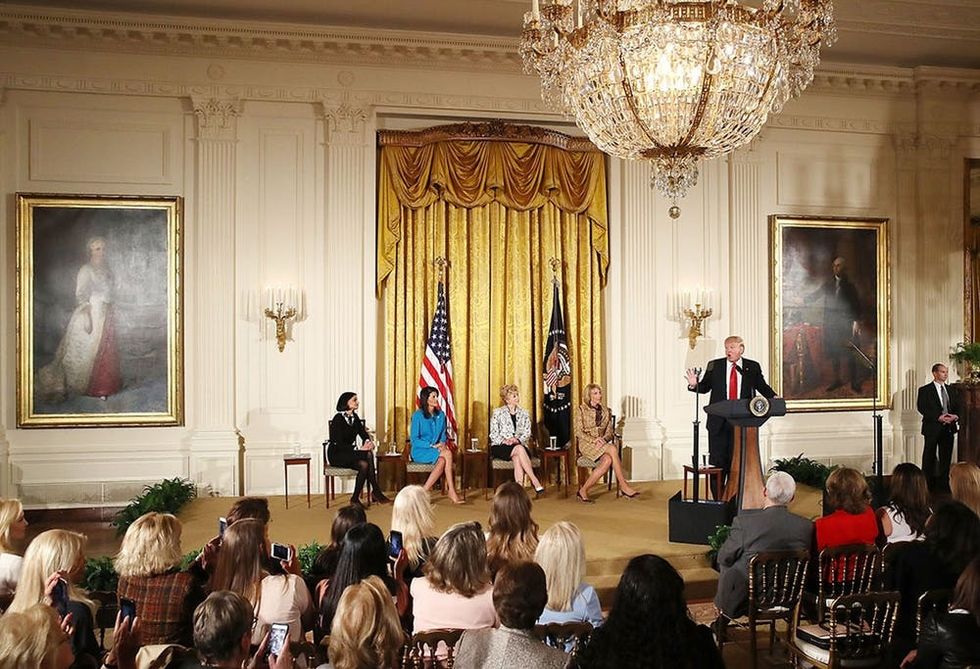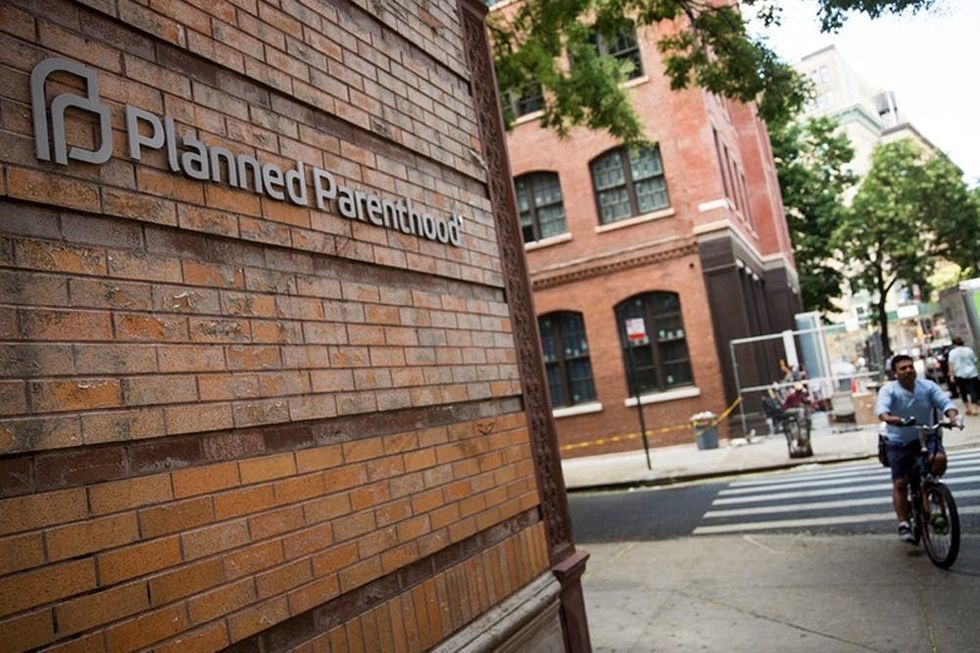This Senate Vote Threatens Millions of Women’s Birth Control Access and More

On Wednesday afternoon, President Donald Trump held a panel where he spoke about women’s empowerment. He told the audience, “We want every daughter in America to grow up in a country where she can believe in herself, believe in her future, and follow her heart and realize her dreams.” The following day Vice President Mike Pence made a tie-breaking Senate vote that could effectively remove millions of women’s access to family planning services, and other essential healthcare.

The vote that took place in the Senate was about changes related to Title X (ten), a federally funded program that provides health care clinics with family planning services. Birth control, a consultation about birth control, cervical and breast cancer screenings, and testing and treatment for STDs and HIV are all services covered by Title X funding. To be clear, none of the money for this program goes toward abortion services. We repeat: Title X has literally nothing to do with abortion.
Fact: According to a recent survey, 40% of women who receive care at #TitleX clinics consider it to be their only source of health care.
— Cecile Richards (@CecileRichards) March 30, 2017
The program’s primary goal: to make these sort of services affordable for low-income and underserved communities. Kinsey Hasstedt, a senior policy manager at the Guttmacher Institute, explains, “If a woman goes to a clinic that receives Title X dollars, they don’t have to apply. Anyone who comes to that clinic and has an income below the federal poverty level receives services without charge. [Patients] who have income levels of 100 to 250 percent above the federal poverty level can be charged by the clinic, but on a sliding scale. The higher your income, the more you might get charged. But the intent is always to make family planning care affordable for everyone.”
In December of 2016, President Obama signed a law that required Title X funding to be determined and dispersed at a federal level. Meaning, regardless of whether a state leans more toward the left or the right, their Title X funding would be protected. Yesterday, the Senate effectively undid Obama’s ruling by making it a state decision. Now each state can decide whether or not they want to allow the program to continue.

Just like when the transgender bathroom ruling was changed from a federal regulation to one that can now be decided on a state-by-state basis, this puts women (particularly impoverished women) who rely on the program and live in more conservative states in danger of losing access to the health care they rely on.
A prime example of a clinic that could now risk losing that money: Planned Parenthood clinics in Ohio. The state has seen 18 separate restrictions passed on women’s reproductive health since Governor Kasich was elected in 2010. Jocelyn Smallwood, a spokesperson for the Planned Parenthood Advocates of Ohio, tells us she isn’t exactly surprised by this ruling. She says, “In Ohio, this is really more of the same. With the current administration in place at the federal level, we sort of anticipated these attacks to increase in frequency. Certainly, the Republicans’ legislation here [in Ohio] has taken direction in what they’re doing from the federal level.”

On a national level, Planned Parenthood receives $553 million from Medicaid and Title X combined. So if the funding is removed from Planned Parenthood in Ohio, what would happen? To this question, Smallwood answers quickly and adamantly: “The bottom line for us is that our doors are going to stay open. Oftentimes, they hear about the defunding of a specific program and they think we are going under. We want to remind people that we’re not going anywhere. The organization has been around for a long time in Ohio. We’ve been around for almost 90 years [nationally]. We will continue to keep our doors open and help as many people as we possibly can.”
So just to quickly recap: Title X provides family planning services for impoverished women who are often living in poor and rural communities and has nothing to do with providing money to fund abortions. Knowing this, it begs the question: What’s the government’s motive here? How is this being considered a win by the Republican party?
The obvious answer: If states start opting out, it will save the federal government money. But Hasstedt explains that even this logic is simply not true. “We know that for every taxpayer dollar invested in family planning, the net government savings is seven dollars. So it kind of drives me batty when I see the budget proposals from social Conservatives that say, ‘Well, if we eliminate Title X it will immediately save taxpayers hundreds of millions of dollars.’ That’s incredibly misleading because it’s a very cost-effective program.”
Title X is a bipartisan program to provide birth control, cancer screenings & HIV tests, & @VP Pence cast the tiebreaking vote attacking it
— Elizabeth Warren (@SenWarren) March 30, 2017
“If you look at it from an evidence-based perspective, this move makes no sense,” Hasstedt continues. “Title X is an incredibly important source of care in helping women to obtain contraception, which is fundamental to women’s health and wellbeing. It helps them get and keep a job, achieve their career goals, take care of their families…”
The honest truth: Even though Title X has nothing to do with abortion, this is still about abortion. It’s about undercutting the healthcare clinics’ ability to operate, whether these clinics offer abortion on not. Planned Parenthood is the best-known clinic for services like birth control, but it’s not the only place where Title X is used. Community health centers, state or country-run health clinics, non-profits, and sometimes even hospitals receive funds from the program. If Republicans on the Hill are so committed to ending abortion, why are they also eliminating services that help prevent women from getting pregnant in the first place?

“People want to talk about abortion,” Smallwood admits. “They [politicians] frequently want to make things about abortions because they have a group of people on their side. Title X doesn’t have to do with abortion. Federal funds already don’t go toward abortion, neither do state funds. But in spite of that, we say those things and people want to make it about something that it’s not. They don’t want to admit or even think about the fact that they’re stripping people of health care.”
“We know that in the US, there are four million low-income people that depend on Title X family planning,” she adds. “It’s important to remember that each of these numbers is a person with a story and that they will be left without anywhere to turn if they don’t have access to these services.”
What is your reaction to yesterday’s ruling on Title X? Share with us on Twitter @BritandCo.
(Photos via Getty)


















